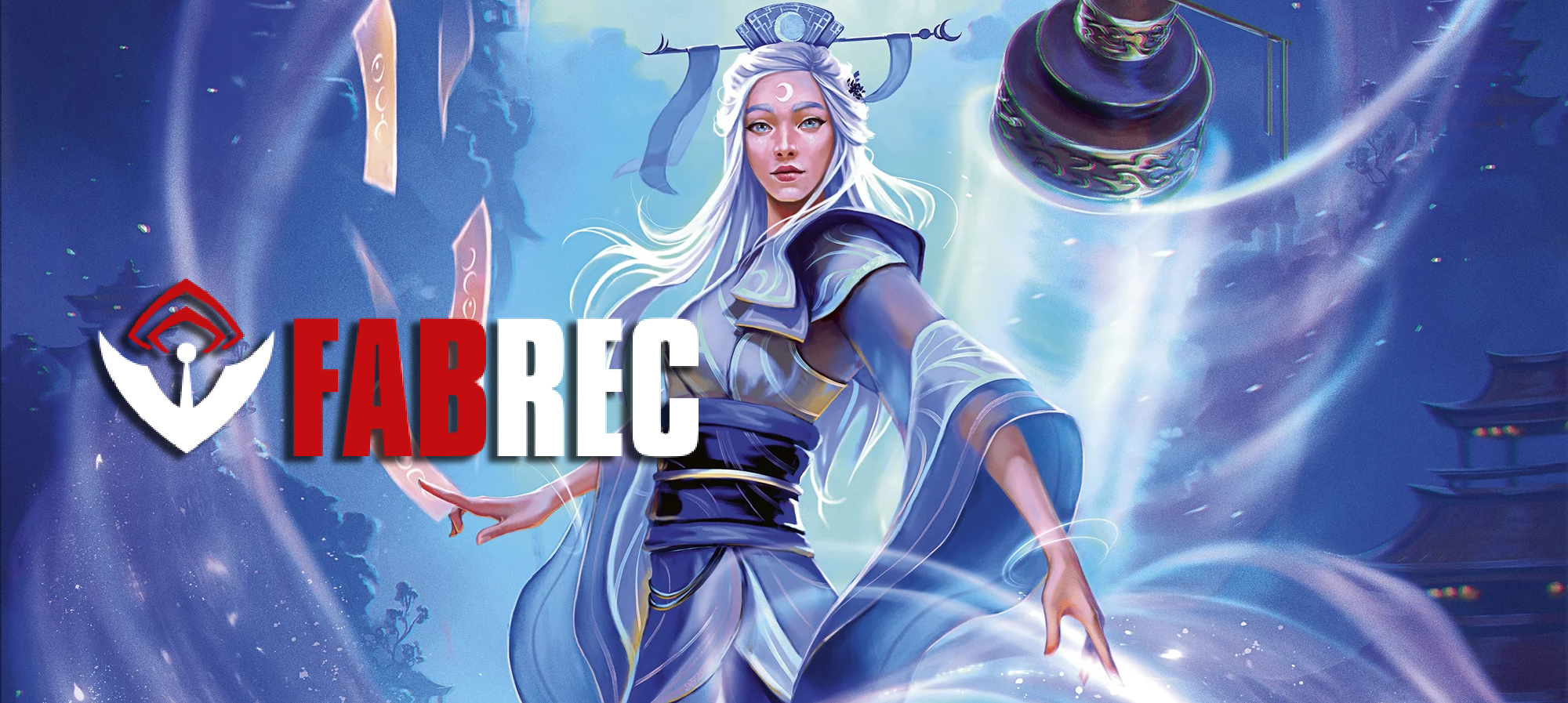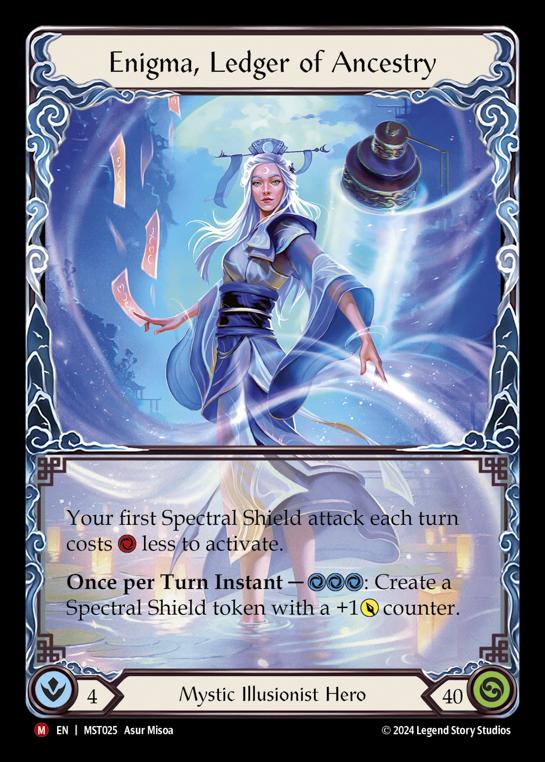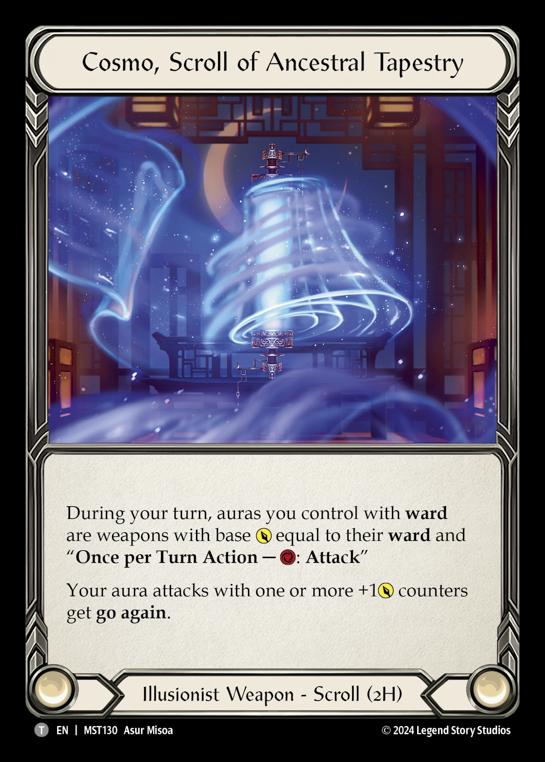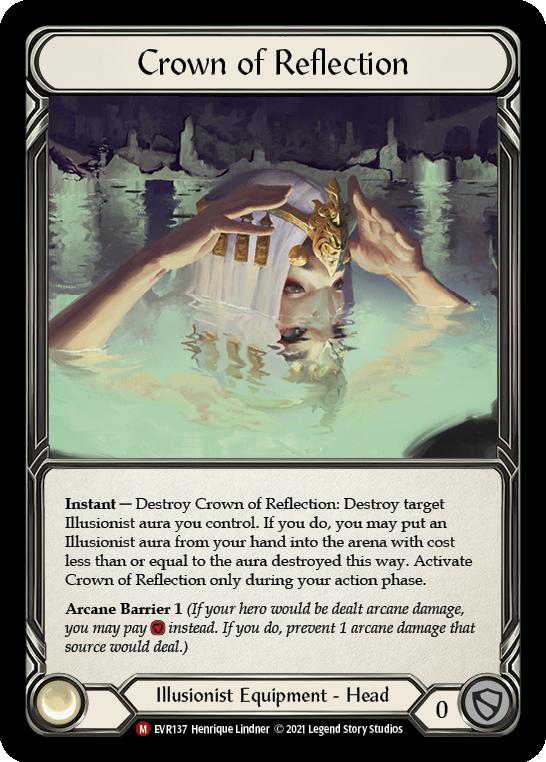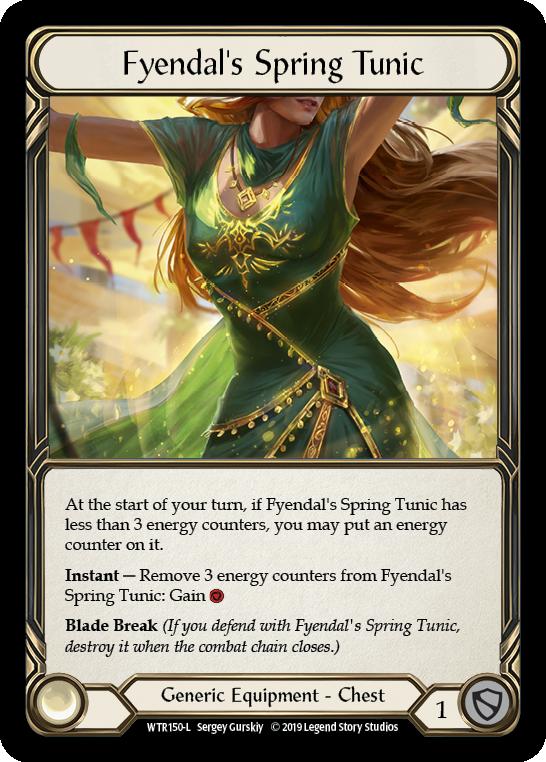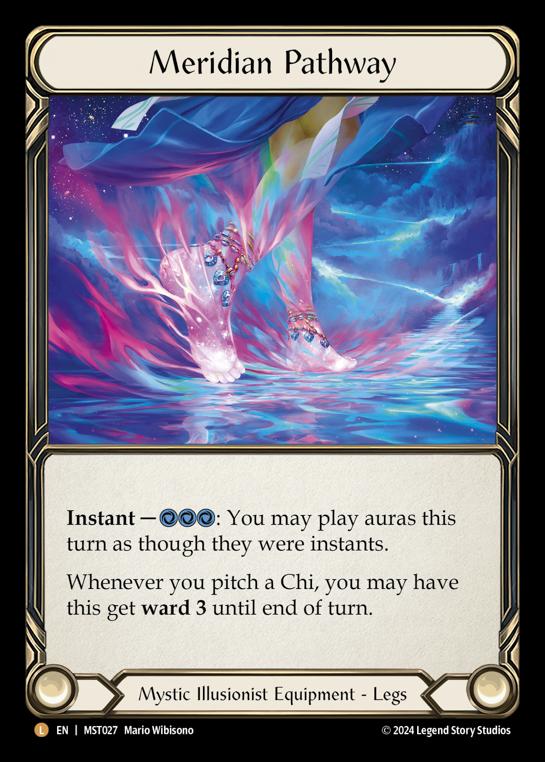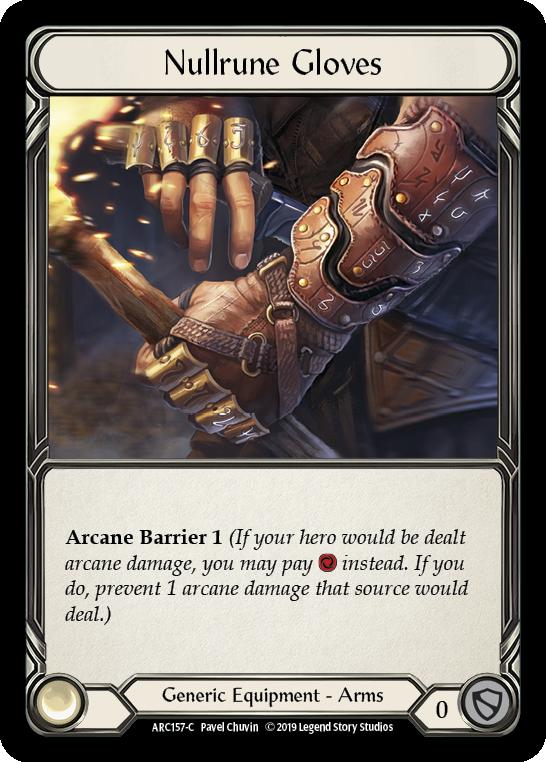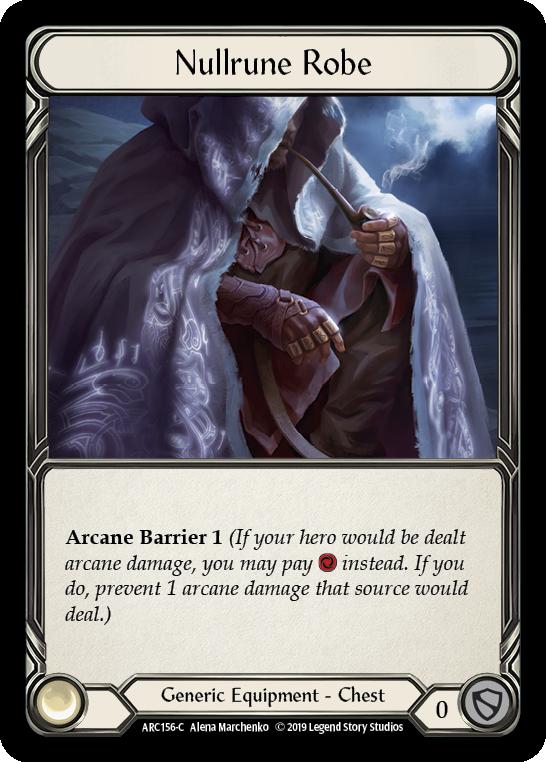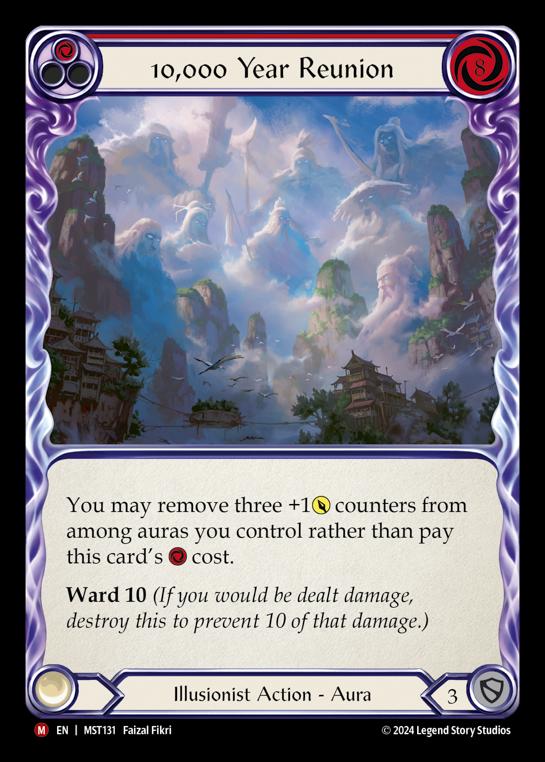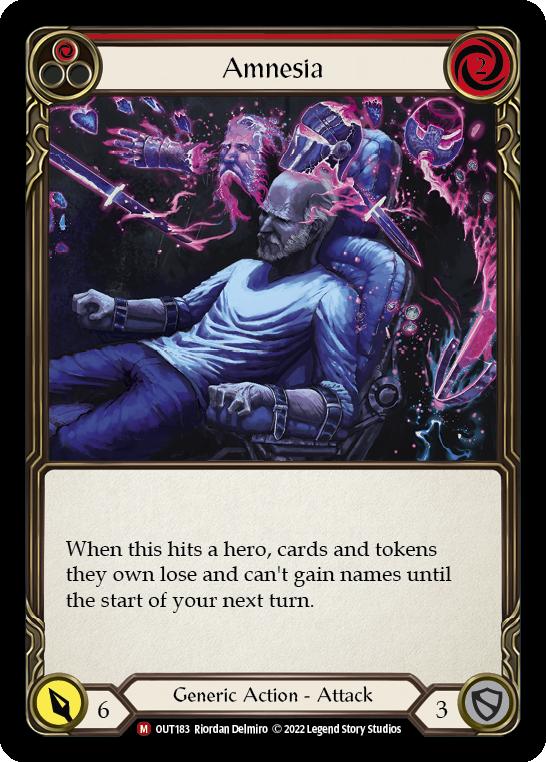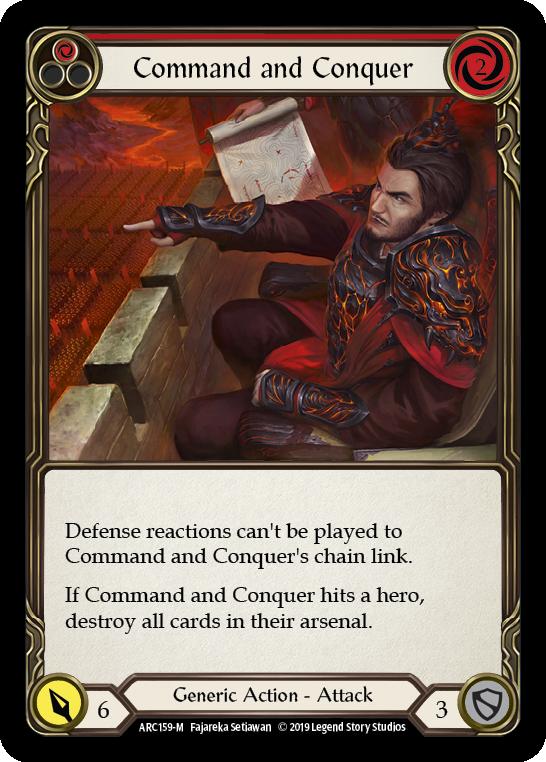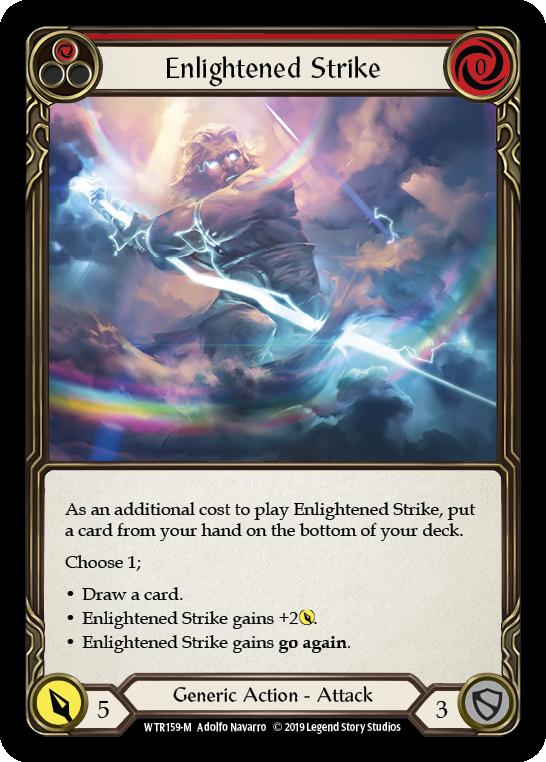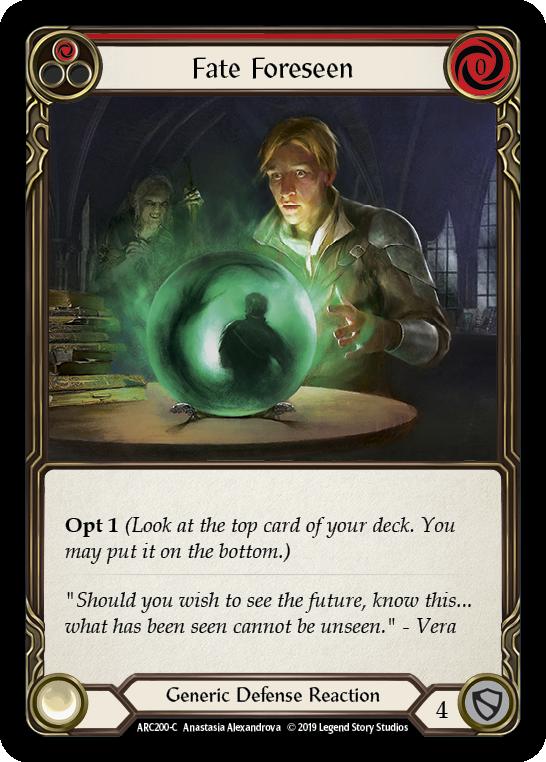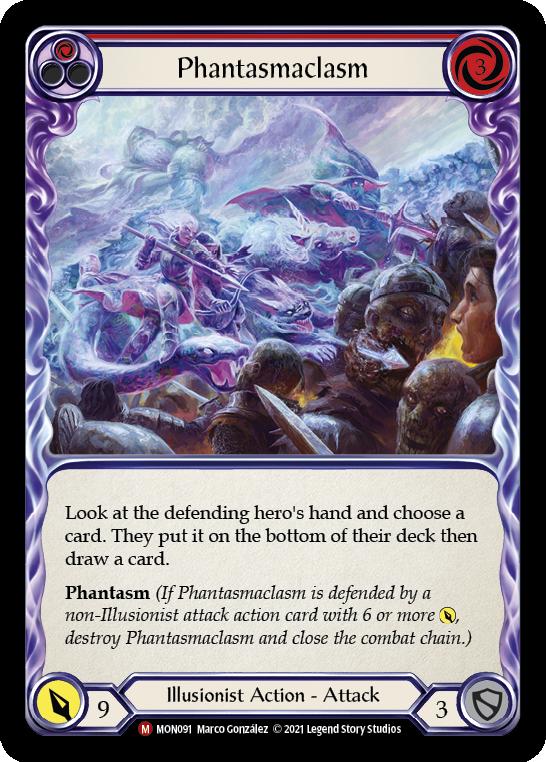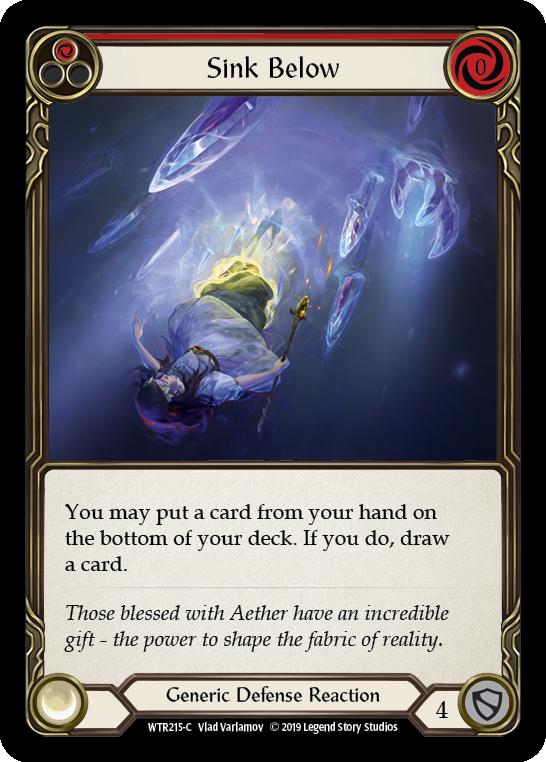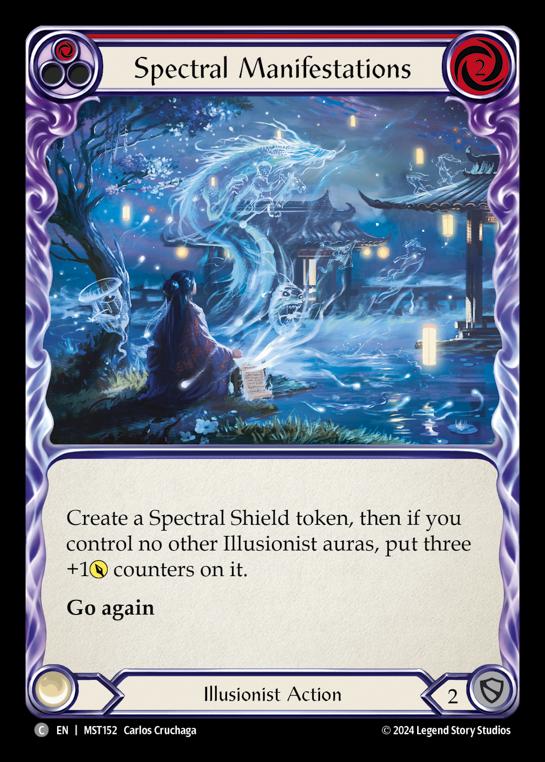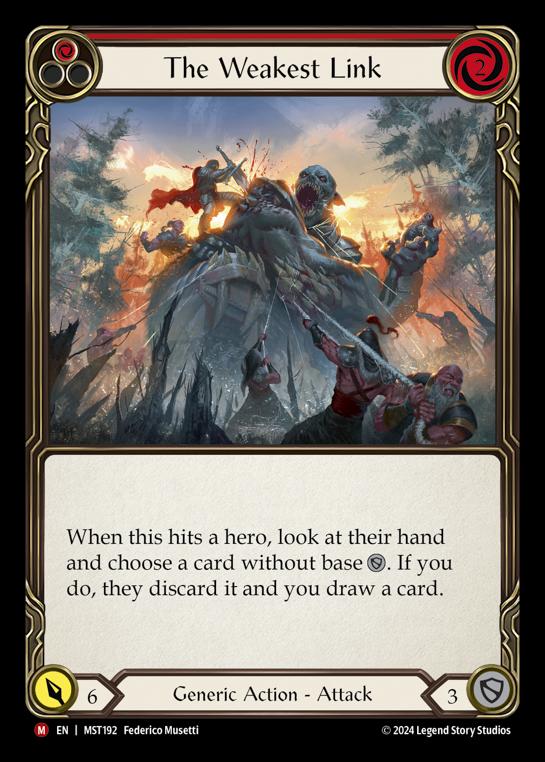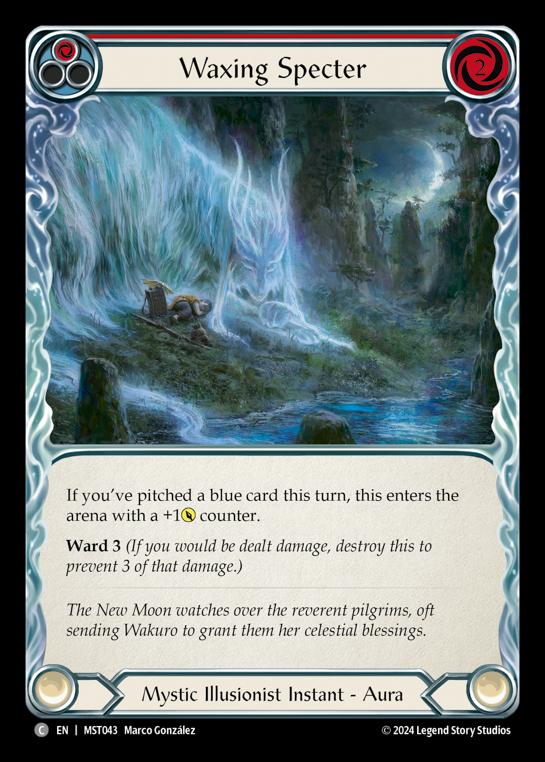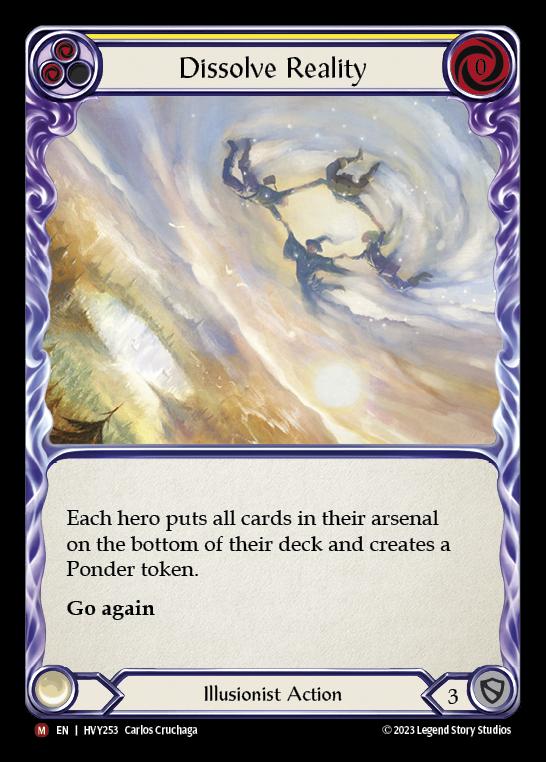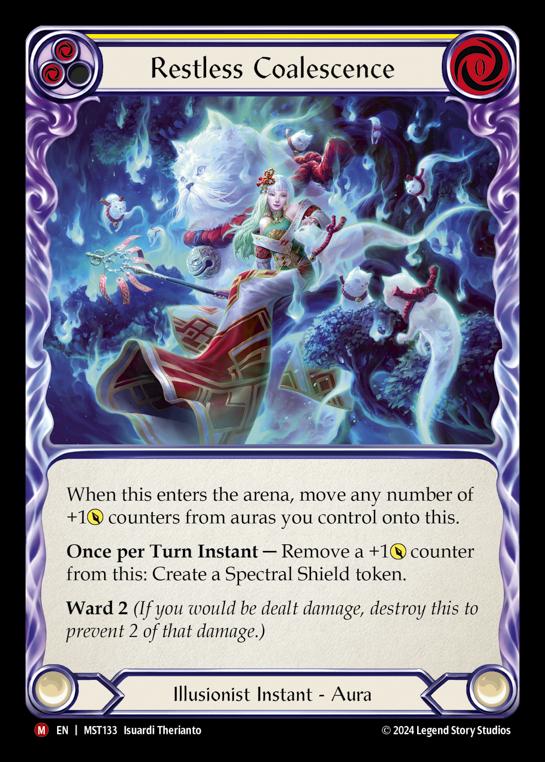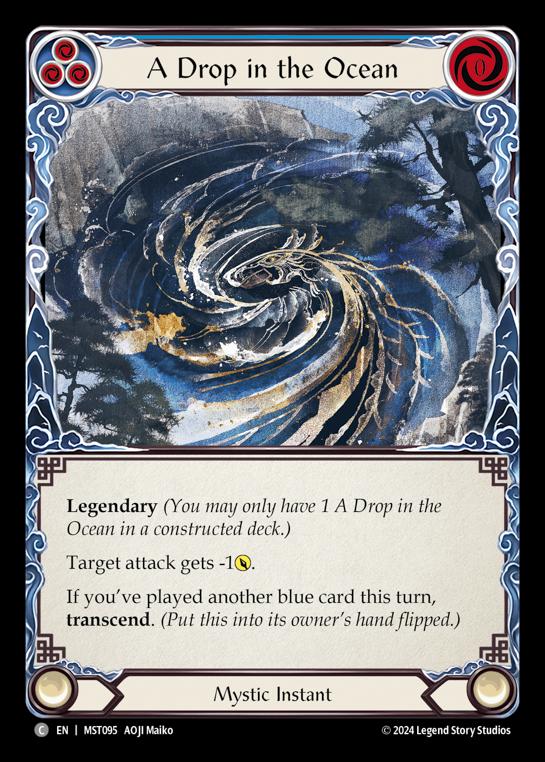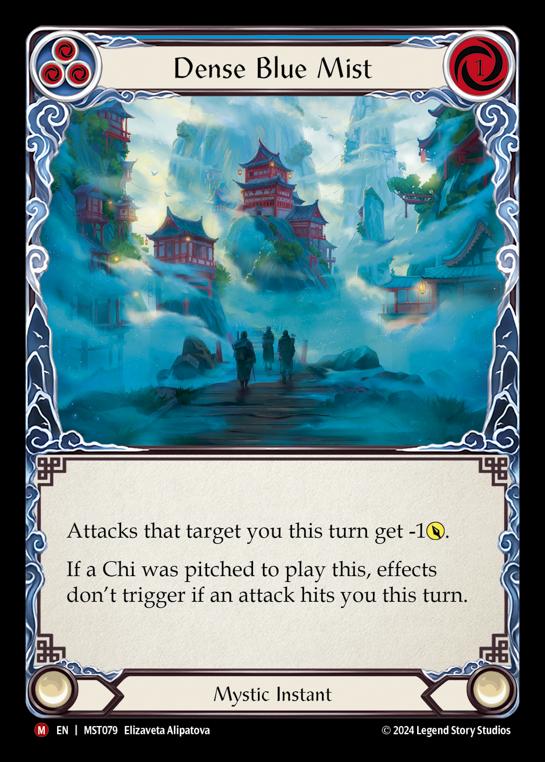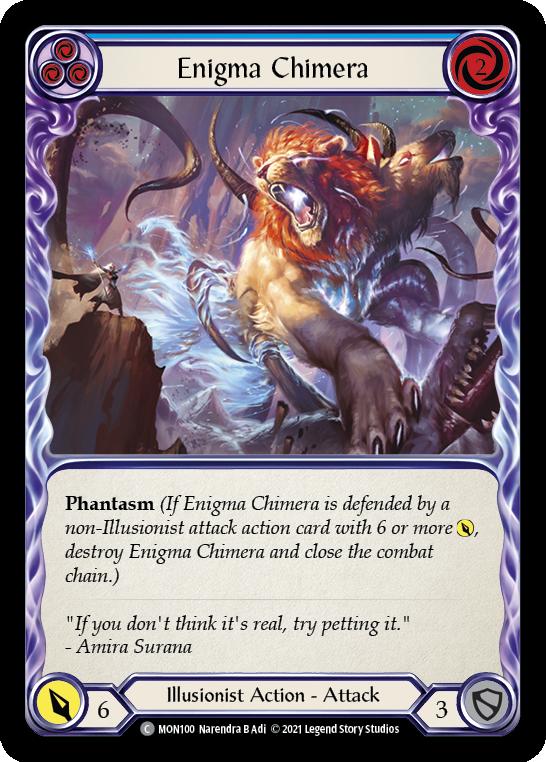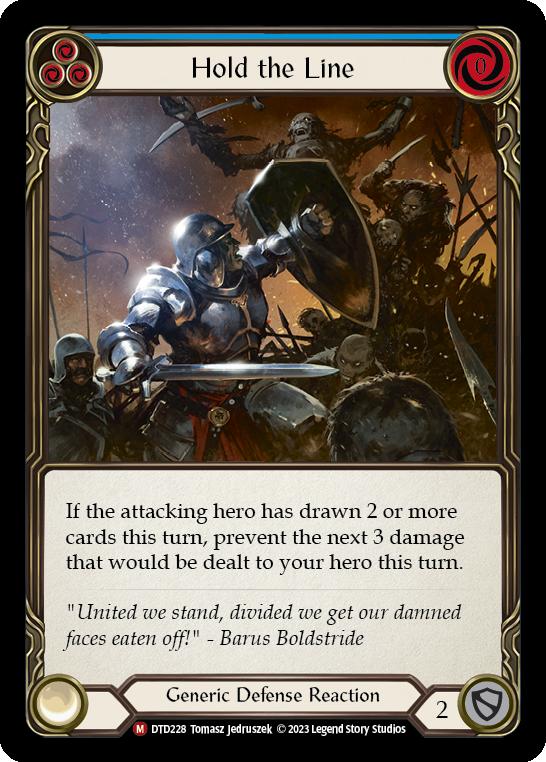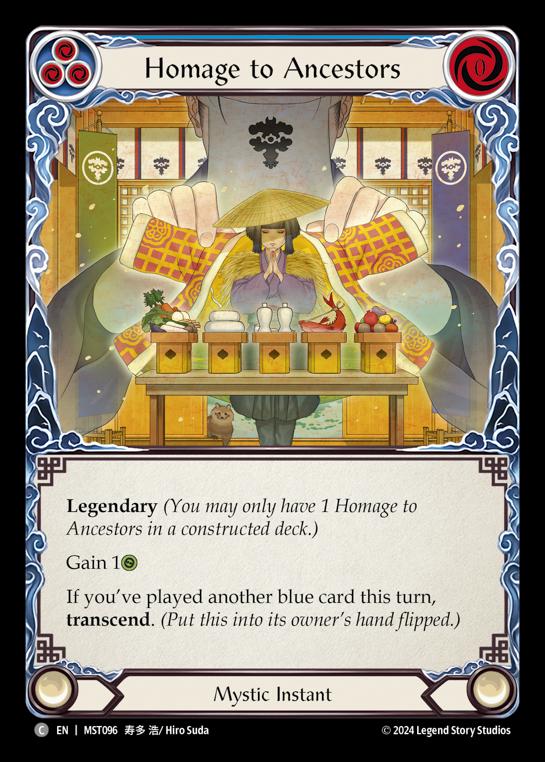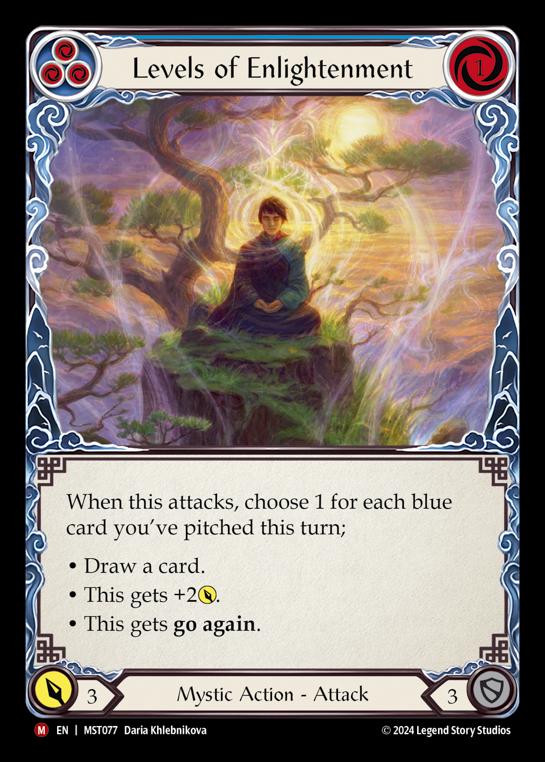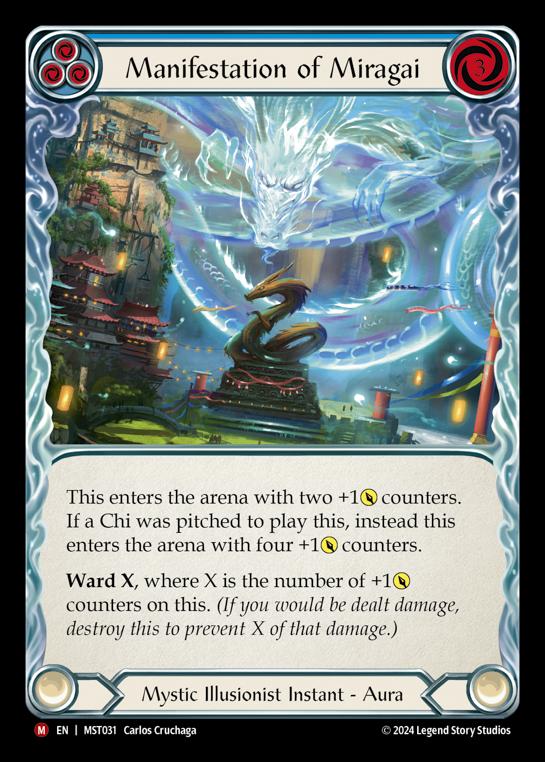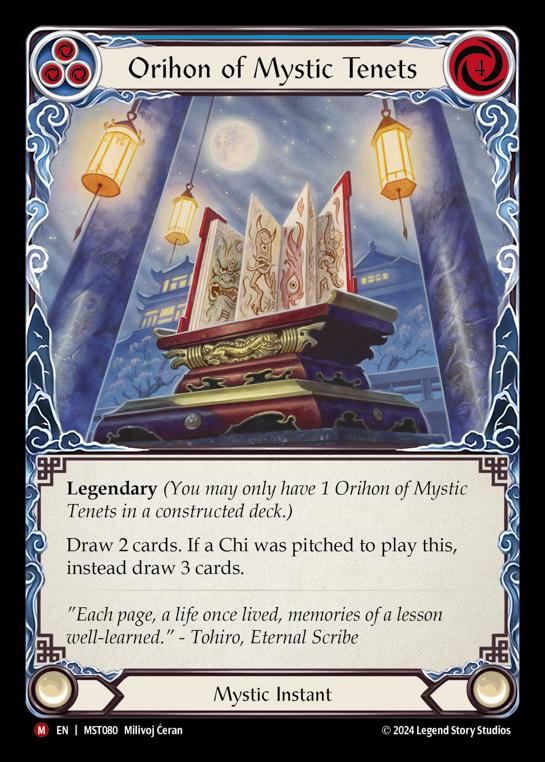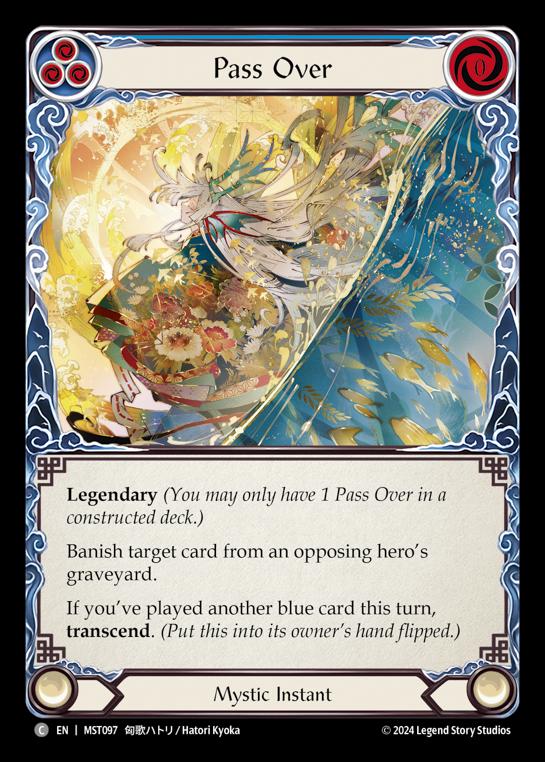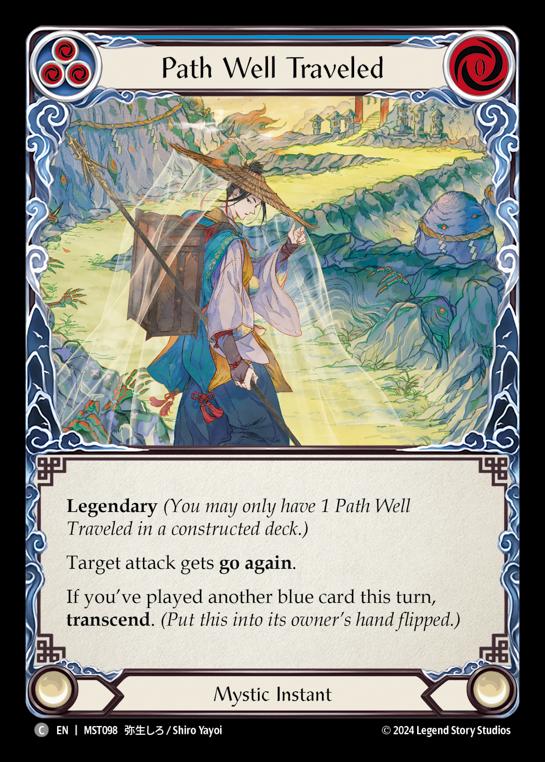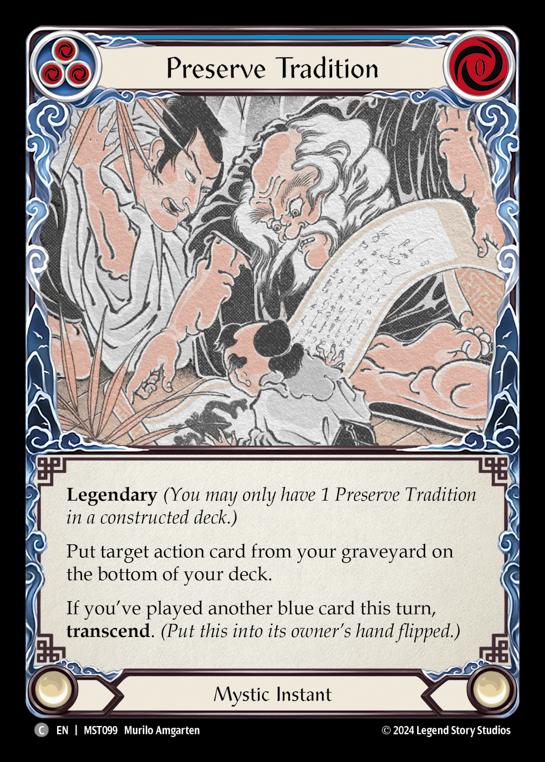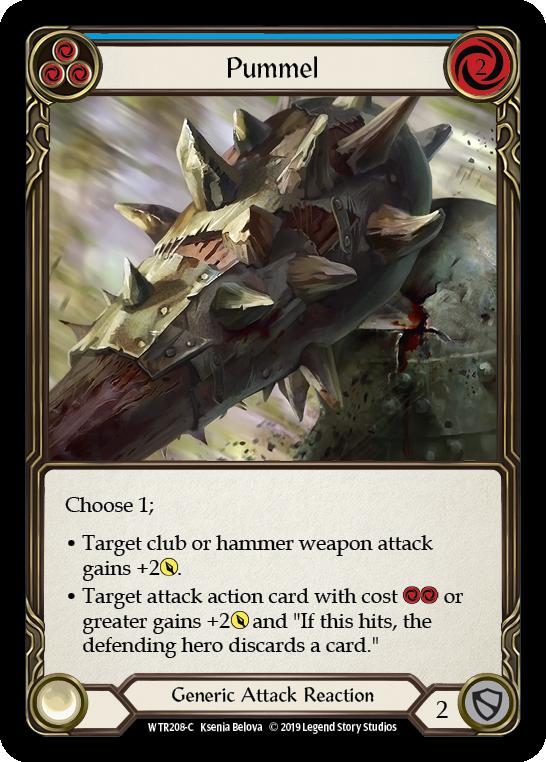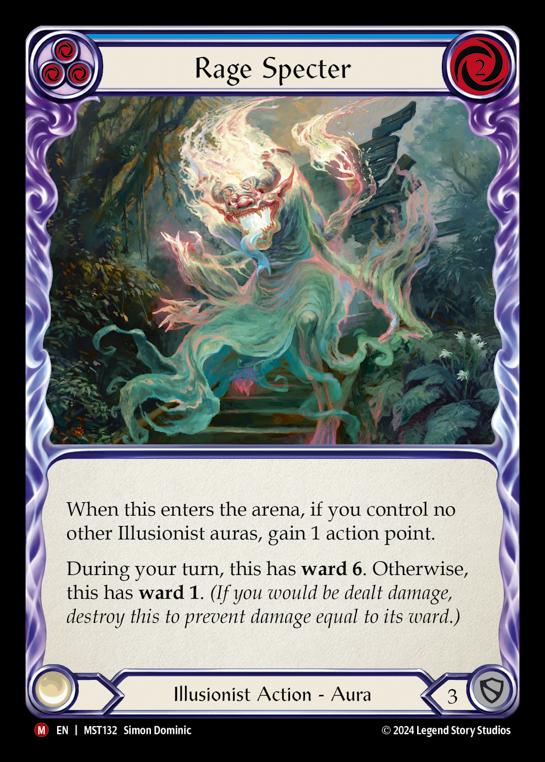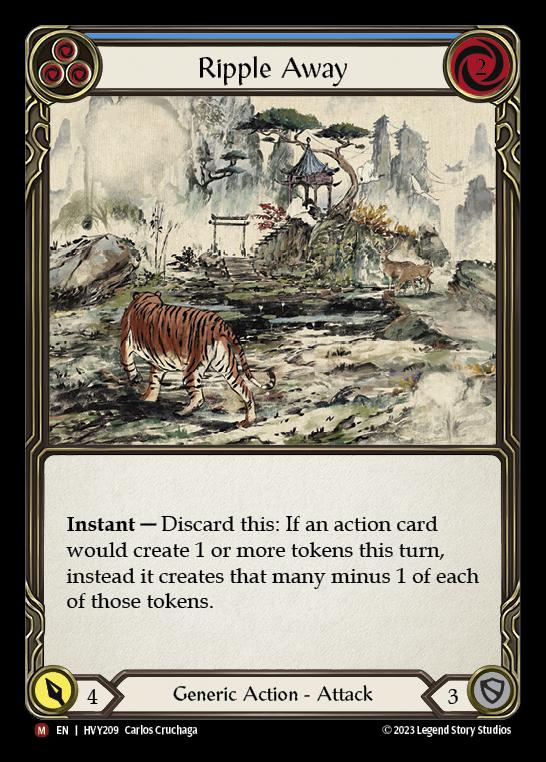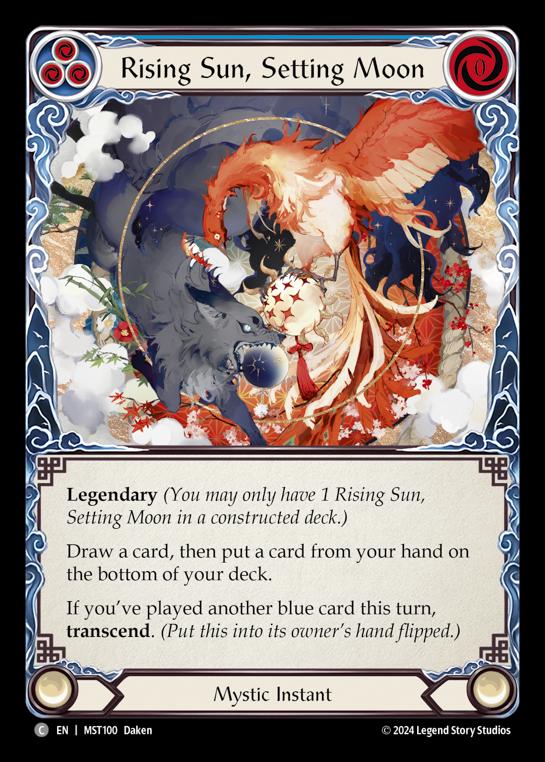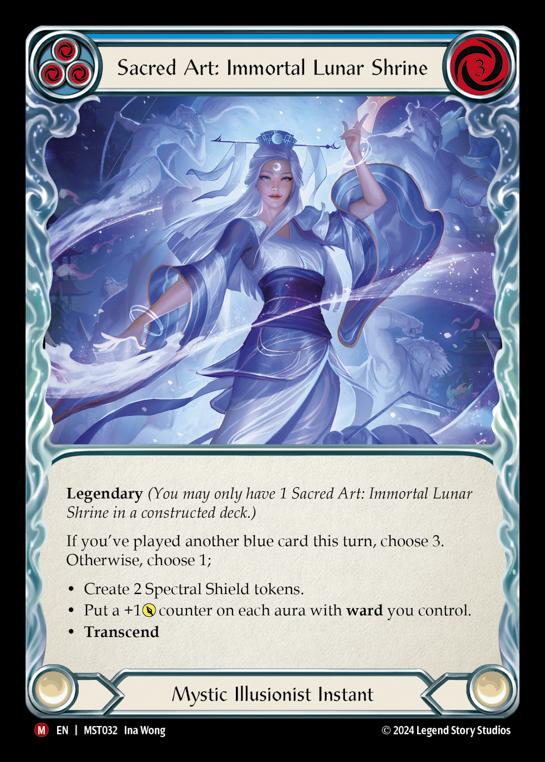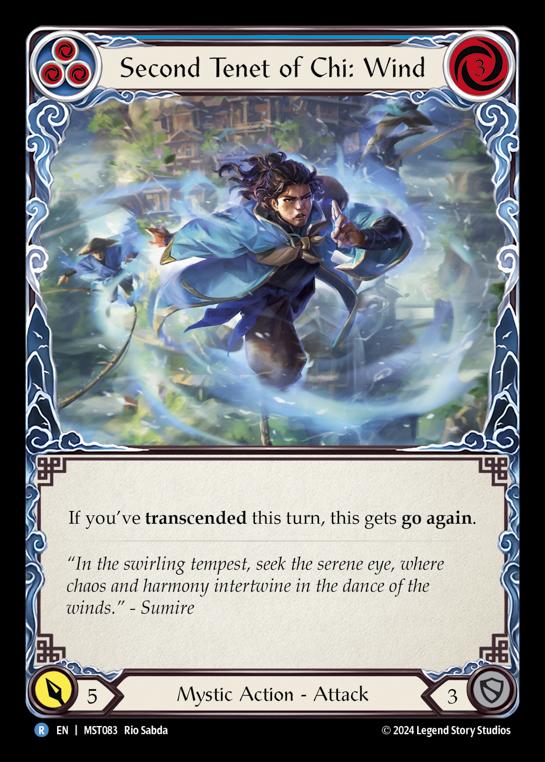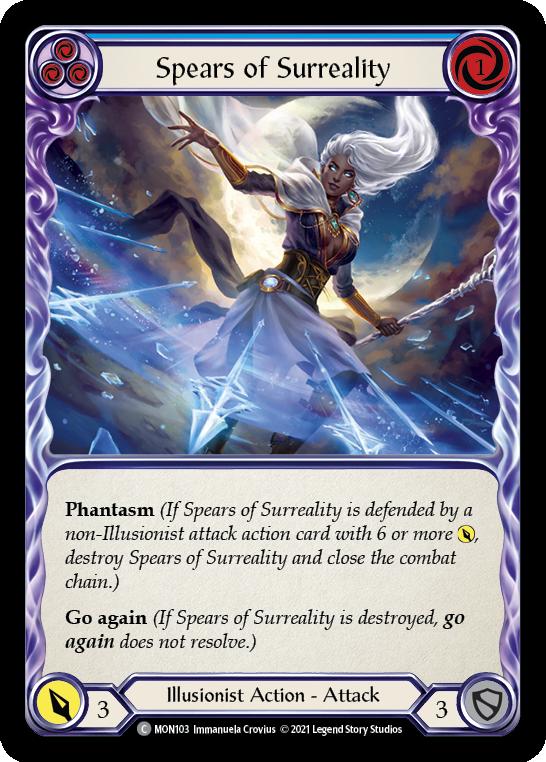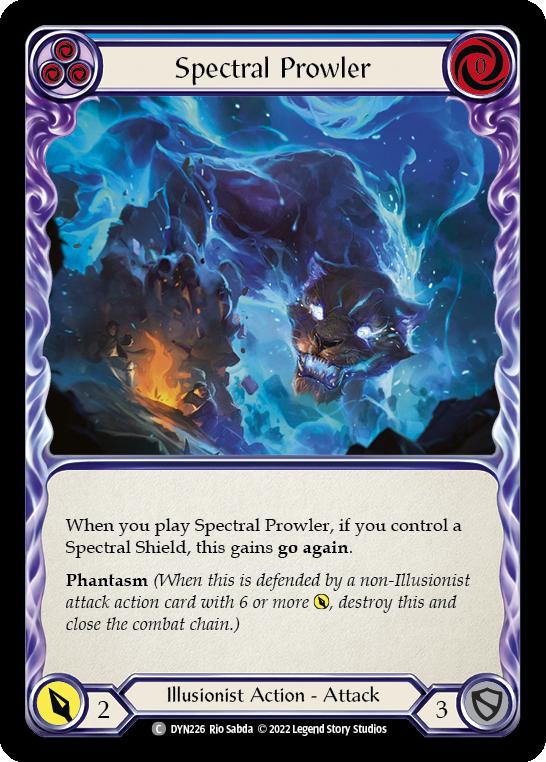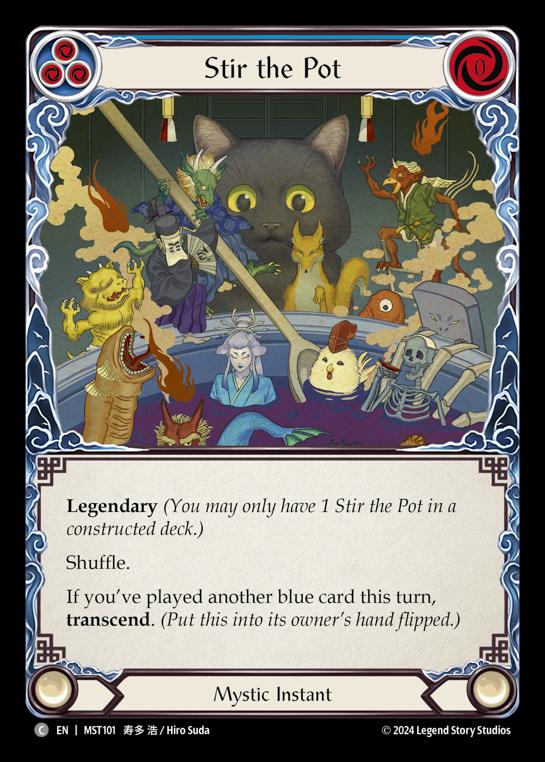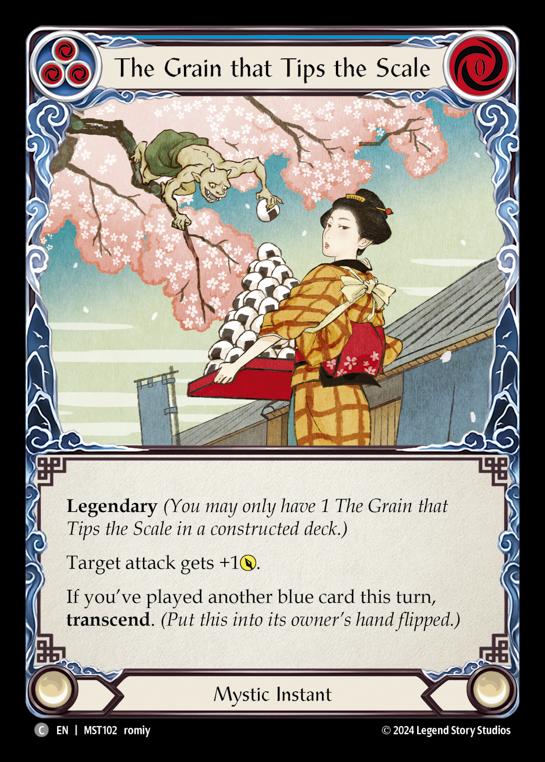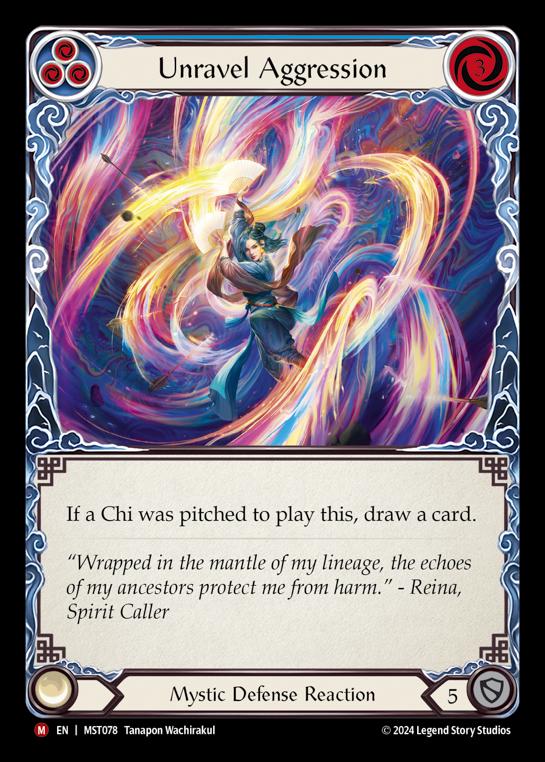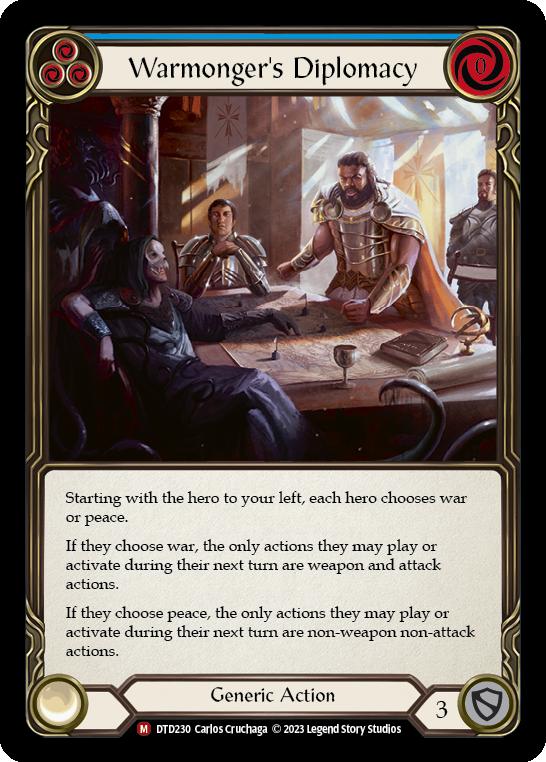Many Flesh and Blood players will play a class or hero regardless of its position in the greater context of the format, lovingly referred to as “X mains.” After the Tales of Aria heroes rotated out by reaching Living Legend status, many players found themselves without their “home” hero or class. If you find your local tournaments flooded with the new heroes from Part the Mistveil, consider that an incredible density of players suddenly found themselves with heroes reminiscent of their favorite play patterns that have long since rotated from the Classic Constructed environment. Oldhim, Grandfather of Eternity players in particular have gone some time without a hero that was defensive, fiddly, and boasted the ability to pivot to an aggressive plan when the game state called for it. Those players can now take a breath of fresh air with the printing of Enigma, Ledger of Ancestry.
This is Rhys back with another installment of Evergreen, an article series focused on unlocking the hidden potential of the heroes of Flesh and Blood in the Classic Constructed format. Boasting immediate results in the competitive scene, Part the Mistveil‘s heroes are providing a very welcome shakeup to the original concept of value in this game.
Illusionist can be an intimidating class to start, since it has a high tendency to punish misplays in the hands of a new player. It’s a boon to the class that Enigma is, at least at the time of this article’s writing, a bit less complex than her Solanian counterpart in Prism, Awakener of Sol. If you want to get your feet wet with the class, this is a great place to take the first step!
Put Your Best Foot Forward
To lay the groundwork for playing Enigma, you’ll want to re-familiarize yourself with the timing that you’re allowed to take instant-speed actions in Flesh and Blood. It doesn’t suffice if you’re one of those folks who played Magic: the Gathering to say “I already played Magic, I think I have it figured out,” because you actually won’t! There are key moments you have priority as a player, and moments you don’t, that differ between the two games.
It’s advisable to have a brief look at the comprehensive rules to learn about what you can do, notably section 1.1 on priority, which contains helpful links to jump you to different relevant sections. Knowing the nuances of these steps means you’ll know when you can, and can’t, activate instant-speed effects to play defensive wards that can serve the dual purpose of keeping yourself from being disrupted, while also putting your opponent on the back foot by them spending resources and cards on effects they don’t get their desired effect from. Even if Enigma is the lower difficulty of the two available Illusionists in the format right now, you’ll likely still find yourself making inefficient attacks and blocks when learning the deck. Just know that is perfectly normal and it would be good to expect it so you don’t get discouraged!
This deck very clearly centers on the ability to pivot into a Manifestation of Miragai that serves as a powerful weapon. One energy for a go again attack for eight is absolutely terrifying, and you’ll often find yourself playing “protect the queen” with your spectral shields once this is deployed, but part of the build and rebuild focus of the deck is learning when to let the dragon go to rebuild later. It can be tempting to just play the dragon as soon as possible to rumble for four or eight, if you’ve transcended, but playing a solitary Miragai means you may find yourself overcommitting to protecting it, leaving you under pressure instead of your opponent!
This is a hero that really likes to set things up, so don’t be afraid to park a key card in arsenal for a bit if it’s not the best time to play it. If it gets torched by a Command and Conquer or another arsenal disruption effect, that’s still better than overcommitting to it and losing multiple cards and chunks of life to end up without it anyway.
Before going into too much greater detail, we’ll take a look at the cards in their context of a full deck. Arthur Murta assembled this list to take down Brazil’s Nationals tournament.
Be Quick on Your Feet
If you take even a cursory glance at this deck, you’ll immediately observe the list having cards reminiscent of an Iyslander, Stormbind build of old, lovingly referred to as Bullander – hands with solid defensive value and a setup for a powerful two-card return attack.
Phantasmaclasm does an even better impression of
Wounded Bull as a great way to convert a two-card hand into becoming the aggressor after defending or building up a board of auras. Staying aggressive with go again attacks like
Second Tenet of Chi: Wind and the ever-present
Enlightened Strike are powerful resources for battling out the mirror match, as well as the single
Pummel in this particular list! One of the best things about
Enigma, Ledger of Ancestry is how she very much wants to be playing blue cards, whether or not they are themselves below the usual rate, because of how well they synergize with the cards looking for played blues to transcend into
Inner Chi.
Enigma wants as many transcend cards as possible, so you’ll see her playing the full suite of nine legendary instants to transcend with.
This is a great place to express yourself in how you prefer to play the game. If you prefer aggressive play styles, you can play
Pummel here. But if you prefer defense, you can consider something like a blue
Sink Below,
Snag, or
Dense Blue Mist. Where early builds of
Enigma had very few aggressive cards, now that lists have been developed into a more blended state, you’ll see a fair amount of Phantasm attacks in your blues.
Spears of Surreality and
Spectral Prowler each offer go again, helping you easily set up transcending while being proactive, which is where
Enigma wants to be. Ideally, you spend as little time as possible simply building a board and not threatening anything for your opponent. Most heroes in this format will be able to break down a board with a full hand, so giving them that window as little as possible is ideal.
Since
Enigma, Ledger of Ancestry is closer to the end of the defensive spectrum in the context of the
Flesh and Blood game system, you won’t see a lot of overt disruption in her card pool. But what she lacks in that, she makes up for in being able to pivot quickly around what other heroes are doing. Ward prevents on hit effects, and
Restless Coalescence can be placed in a way where it absorbs counters from multiple auras that are about to be destroyed, offering you a way to pivot to aggression even if you’re losing your board to an opponent who is pressuring you.
Waxing Specter is a great way to save an important aura or prevent an on hit effect, but measure carefully when you use it, since you have limited access to that effect.
Meridian Pathway can help buy you out of bad situations if you don’t have one, but you’ll often go card negative to do that, unless you’re blocking with
Traverse the Universe to search up an
Inner Chi to activate the leg equipment. This is sometimes necessary, but measure carefully when you’re using those finite resources, and if it’s a situation where you’ll stay in control of the game by giving up those pieces. It’s sometimes hard to immediately tell, so be sure to reflect on the turns following that event at the end of the game to see if it was beneficial, or if you could have done something different, such as simply letting your opponent take the auras on board so you can rebuild.
One Step at a Time
If you’re feeling a bit overwhelmed, it’s because this is a highly difficult hero to master! How and when to defend is sometimes itself a long process, and being gentle with yourself when taking losses is the best way to learn and grow in the Illusionist class. If you’ve been around enfranchised players, you’ll already likely know that Illusionist is among the most complex classes you can play in
Flesh and Blood. The mere presence of ongoing effects in the game via permanents impacts so much about how each player plays their turns, so have an open mind if you’re feeling overwhelmed. Since
Enigma operates with more ward auras than spectra auras like
Merciful Retribution, it’s arguably more balanced while also making you weaker to aggressive decks that make several small attacks per turn. Ninjas in particular can be a point of frustration by going as many as six or seven attacks wide,
Manifestation of Miragai having ward four hardly matters when it dies to one damage that can’t be defended.
This wraps up this edition of Evergreen! Writing articles for defensive, reactive heroes is always a unique challenge, so if there’s anything you want to see in future articles, feel free to let me know. Thank you again for your time, and here’s to your future Armory wins!
Further Reading:
Intro to Enigma in Commoner
How to Upgrade the Enigma Blitz Precon
Enigma – Fun or Competitive?
Rhys (she/they) is a long-time Magic: the Gathering fan, having started in Seventh Edition. She played Legacy until around 2018, and now mostly plays EDH. She Transitioned to competitive play with Flesh and Blood at the release of Tales of Aria, where she was quickly enamored with the skill expression, seeking constant self-improvement. When not obsessing over cards, Rhys can be found consuming speedrunning content, or fawning over literature like The Witcher, or Sherlock Holmes.
